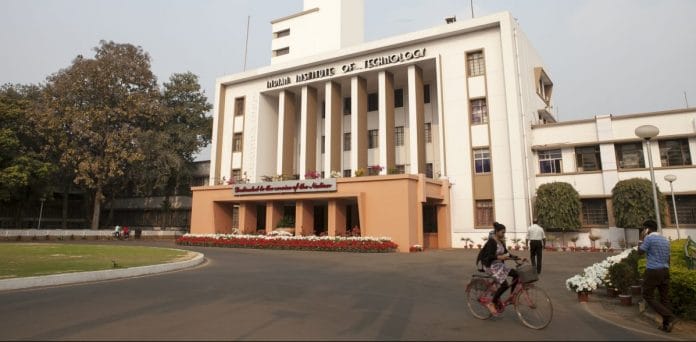HRD ministry wants higher education institutes like IITs to have 20% international faculty. But the figure is just about 1% at IITs.
New Delhi: The Modi government is keen on getting international scholars to teach at higher education institutes in India, but even the flagship Indian Institutes of Technology (IITs) have not been able to attract many.
In fact, only 40 foreign nationals teach across the 23 IITs according to latest data from the human resource development ministry — which is only about 1 per cent of the total strength of 5,400 faculty members. The ministry’s target is to have this figure climb to about 20 per cent, since it would help boost the institutes’ international rank and profile.
Also read: For new IITs, govt sets some ground rules — no swimming pool, food court with public money
While the IITs do employ Indian-born persons settled abroad, recruiting foreign nationals has proven to be very difficult, despite the institutes regularly holding roadshows and interactions at foreign universities.
A variety of reasons
Part of the reason for this failure to recruit seems to be bureaucratic red-tapism — a senior HRD ministry official said it usually takes six to eight months between giving an offer letter to the teachers and them joining, because each person has to get clearance from the home ministry and the external affairs ministry.
“The long wait is the reason that many people end up dropping out instead of joining,” the official said. The HRD ministry is now in talks with the two ministries to speed up the process.
Another reason is that foreigners are only offered five-year contracts. “This clause is a little problematic because faculty members face uncertainty when they are bound by such time limits. They do not enjoy the kind of academic freedom that regular faculty does,” said Sudipto Mukherjee, dean of faculty at IIT-Delhi.
One more deterrent for foreign nationals is that they cannot even participate in many research projects of national importance, which are done in collaboration with the government.
“There are two reasons for this — one is because the department of science and technology does not fund them, and the other is that the external affairs ministry wants to keep them away from such projects because they could be crucial to India’s security,” Mukherjee said.
Urgent need
IIT-Bombay and IIT-Delhi, which have recently been given the status of Institute of Eminence (IoE) by the HRD ministry, have an urgent need to recruit foreign faculty, since one of the key criteria for the status is to have 30 per cent international faculty. At the moment, Delhi has just three foreign nationals on board, while Bombay has the most of any IIT — nine.
“We are struggling to meet the 30 per cent quota of international faculty. We are trying to create friendly environment for them but what needs to be sorted is easing of norms,” said Mukherjee.
Even outside these two institutes, there is a huge overall shortage of faculty members. Ministry sources say each IIT is at least 300 faculty members short — the older ones have 500 and need to have 800, while the new ones only have about 100 each and need to hit the 400 mark.
“There are about 7,000 faculty members needed across all institutions and this shortage cannot be met with the numbers of PhDs that each IIT is producing. The most number of PhDs that an IIT produces is 300, and not all of them join teaching. This is also one reason we need international faculty,” said an official from the HRD ministry.
Part of adjusting to new country
Foreign nationals who are already teaching at the IITs recall their experience with the authorities as just one of the teething troubles in adjusting to a new country.
Dr Jun Bey Seo, a South Korean national who teaches in IIT-Delhi’s electrical engineering department, said: “Wherever I go, I need to adjust myself to the country, to the culture. I learnt the speed of paperwork in India quite early, when I was completing my joining formalities.
Also read: IIT Indore makes it to top 400 global institutes’ list, IIT Bombay slips in ranking
“People confused me about the documents — someone said I would need an Aadhaar card and PAN card, someone said I would not. Then, offices would make me come again and again for documents that they needed. Also, the huge queues everywhere unnerved me, but apart from that it’s alright. I came here because I wanted to experience a new culture.”
A European professor at one of the IITs who did not wish to be identified said: “There are initial troubles with the authorities that we have to face. They want to know why we want to come to India. But eventually it is all an official procedure that we need to complete.”







if you pay peanuts, only monkeys will work for you!! When you keep rejecting everyone that applies and do so much politics that cream-of-the-cream does not get attracted back, what else will happen other than vacant Professor Chairs? Grapes are Sour LOL
Well, it will be hard for any foreign teacher to come to India and teach Sanghi science. Well, you might get some professors from Russia or Eastern Europe